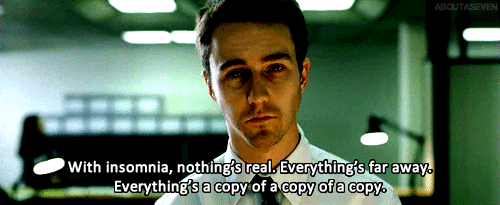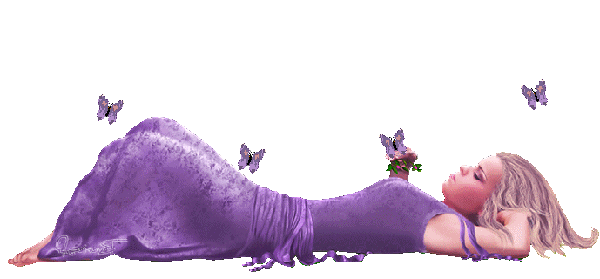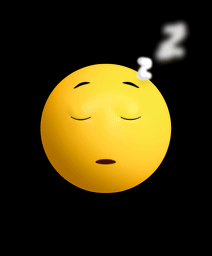Too Little & Too Much Sleep
😴 Sleep Raises Depression Risk 😔

Posted: 02/04/2014
The amount of shut-eye you get each night could affect your risk for depression, new research suggests.
Two studies, both published in the journal Sleep,
show links between depression and getting too much and too little sleep
in adults, as well as a link between depression and too little sleep in
adolescents.
While there is no blanket recommendation
for the amount of sleep adults should get each night, most adults need
seven to nine hours to feel rested, according to the National Sleep
Foundation. Meanwhile, teens generally need between 8.5 and 9.25 hours
of sleep a night.
The first study, conducted by researchers at
the University of Washington, University of Pennsylvania and the
University of Texas at Austin, was conducted in 1,788 same-sex adult
twin pairs, who were part of the University of Washington Twin Registry.
All of the participants reported their typical sleep duration, as well
as any symptoms of depression.
Generally, researchers found that
people in the study who slept a "normal" amount each night - between
seven and 8.9 hours a night - had a 27 percent heritability of
depressive symptoms. But people who slept fewer than seven hours a night
or nine or more hours a night had an increased heritability of
depressive symptoms: 53 percent for the short sleepers and 49 percent
for the long sleepers.
"As sleep duration moved away from the
extremes and toward the 'normal' range, the effect of the non-shared
environment was more strongly associated with depressive symptoms, while
genetic factors became less important," the researchers wrote in the
study. "These findings show a gene-environment interaction between sleep
duration and depressive symptoms."
The researchers noted that
while the study did not explain specifically how genetic factors
explained the link, "recent findings suggest candidate genes and
pathways."
The other study, conducted by researchers from the
University of Texas Health Science Center and the Centers for Disease
Control in Vietnam, examined sleep duration and depression risk for
adolescents. For the study, 4,175 Houston-area 11-to-17-year-olds had
their sleep and depression symptoms measured.
Researchers found
that sleep deprivation was predictive of depression. Specifically,
getting six or fewer hours of sleep a night (including weekends) was
associated with increased risk of depression. They did not, however,
find that depressive symptoms predicted the sleep deprivation.
"These
results, particularly for major depression, suggest that quantity of
sleep, following DSM-IV guidelines increases risk for major depression,
which in turn increases risk for decreased sleep," the researchers wrote
in the study. "This is not surprising, given the phenomenology of both
sleep disturbances and major depression."



Do You Talk In Your Sleep?
By Shelby Freedman Harris, Psy.D.
Posted: 02/02/2014
By Shelby Freedman Harris, Psy.D.
Posted: 02/02/2014
Sleep
talking (also know as "somniloquy") is a sleep disorder that involves
unconscious talking when you're asleep. The presentation can vary
greatly between people, with some spontaneously talking while others
notice it happens when someone talks to them in their sleep. Sleep
talking can range from gibberish, nonsensical mumbles and rants, to
complicated and totally coherent statements.
Sleep talking can happen to anyone, though it does appear to be somewhat inherited and affect males and children more often than women. The most common triggers are sleep deprivation, alcohol and drug use, fever, increased stress, anxiety and depression. It is also seen as a symptom in the context of other sleep disorders: night terrors, confusional arousals (waking up in a confused state), sleepwalking, sleep apnea and REM behavior disorder.
Sleep talking can happen at any time during the night and during any stage of sleep. In the earlier part of the night, people tend to be more in the deeper stages of sleep (stage 3/4), and their brain is essentially turned off and repairing from the day's events. During this stage, sleep talking tends to sound more like mumbling or gibberish. Sleep becomes lighter as the night progresses, with our brain becoming very active, processing emotions and memories (REM sleep and sleep stages 1 and 2). During these sleep stages, sleep talking tends to be more understandable to a bed partner and can become a narrative.
Though it isn't physically harmful, sleep talking can
be extremely embarrassing for people. It can also be a major annoyance
to anyone nearby who is trying to sleep, even leading to insomnia in
those who share the room. Patients who sleep talk may avoid sleeping
around others for concern that it might disrupt someone else's sleep,
and sleep talkers often worry about saying something while asleep that
might be embarrassing or problematic.
Many people try to decode their sleep talking experiences, but the reality is that the content can either be completely random or vaguely linked to past or present experiences. As a result, trying to decode it may be impossible. Interesting fact: Since sleep talking happens outside of conscious awareness, it isn't even admissible in a court of law.
For most
people, sleep talking is typically short-lived and doesn't require any
treatment. If it is happening multiple times per week, disrupts a bed
partner's sleep, or if you have fears of sleeping around others, talk
with a sleep specialist to rule out any other underlying medical or
psychiatric disorder that might cause or worsen the problem. If sleep
talking starts after the age of 25, it can typically be seen along with
other medical or psychiatric issues. In severe cases, sleep talking may
be associated with nocturnal seizures.
Proper sleep hygiene (e.g. keeping a regular bed and wake time, avoiding alcohol and tobacco at night, avoiding caffeine from the afternoon onwards), obtaining a full night's sleep each and every night, and minimizing stress and anxiety are all helpful and can reduce sleep talking events. Although it usually doesn't require treatment beyond proper sleep hygiene, more severe cases of sleep talking can be helped by medications and/or psychotherapy.
Proper sleep hygiene (e.g. keeping a regular bed and wake time, avoiding alcohol and tobacco at night, avoiding caffeine from the afternoon onwards), obtaining a full night's sleep each and every night, and minimizing stress and anxiety are all helpful and can reduce sleep talking events. Although it usually doesn't require treatment beyond proper sleep hygiene, more severe cases of sleep talking can be helped by medications and/or psychotherapy.
Bed partners often report that silicone earplugs, a fan or a white noise machine can help reduce noise from the sleep talker. If the sleep talking is especially loud or frequent and disrupts a bed partner's sleep, it might be best to sleep in separate rooms until the sleep talking is under control. Sound sleep at night will lead to less friction between couples and boost everyone's mood.





No comments:
Post a Comment